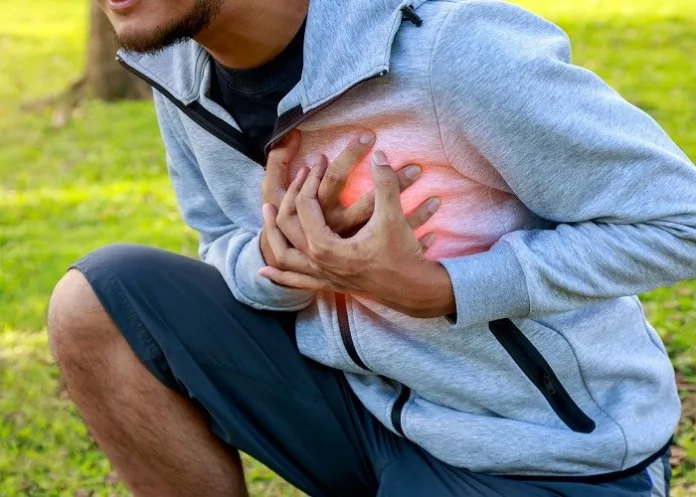Although often seen as an issue for the elderly, sudden cardiac arrest – responsible for 65 000 deaths in Germany annually – can also occur in younger people, affecting between 1 000 to 2 000 people under 40.
Yet many of these deaths in younger people are preventable, say experts in that country.
Sudden cardiac arrest occurs within an hour of symptoms being observed, the fatality usually a result of sustained ventricular fibrillation or sustained ventricular tachycardia.
What should primary care practitioners consider in efforts to detect at-risk patients in time?
Recognise warning signs
Warning signs prompting physicians to consider an increased risk of sudden cardiac arrest include the following:
• Unexplained, brief fainting episodes that, above all, occur with stress, physical activity, or loud noises (e.g, alarm ringing)
• Seizures without a clear pathologic EEG result (e.g, epilepsy)
• Unexplained accidents or car crashes
• Heart failure or pacemaker dependency before 50
“All of these indications could point to an underlying heart disease that should be investigated by a medical professional,” said Silke Kauferstein, PhD, head of the Centre for Sudden Cardiac Arrest and Familial Arrhythmia Syndrome at the Institute of Forensic Medicine, University Frankfurt am Main, in a podcast by the German Heart Foundation.
Sports rarely responsible
Sudden cardiac arrest has numerous causes, and in a professional sports environment, especially in young, fit soccer players, for instance, always attract attention.
Yet sports play a less important role in sudden cardiac arrest than is often assumed, even in young people.
“The incidence of sudden cardiac arrest is, on average only 0.7 to three per 100 000 sports players from all age groups,” Dr Thomas Voigtländer, chair of the German Heart Foundation, told Medscape German Edition.
Men make up 95% of those affected, and 90% of these events occur during recreational sports.
Inherited disorders
The most significant risk factor is age – often associated with coronary heart disease. This can be significant from as early as the age of 35.
Among young individuals, sudden cardiac arrest is often a result of congenital heart diseases, like hypertrophic cardiomyopathy or arrhythmogenic right ventricular cardiomyopathy.
Diseases such as long QT syndrome and Brugada syndrome can also lead to sudden cardiac arrest.
Among young sports players who experience sudden cardiac arrest, the cause is often an overlooked hereditary factor.
“Cardiac screening is recommended in particular for young, high-performance athletes from around 14-years-old,” said Voigtländer, who is also a cardiologist and medical director of the Agaplesion Bethanien Hospital in Frankfurt.
Testing of family
“If sudden cardiac arrest or an unexplained sudden death occurs at a young age in the family, the primary care practitioner must be aware this could be due to heart diseases that could affect the rest of the family.”
In these cases, primary care practitioners must connect the other people in the family to specialist outpatient departments to test for genetic factors, he added. “Many of these genetic diseases can be treated successfully if diagnosed promptly.”
Lack of knowledge
Kauferstein, who runs such a specialist outpatient department, said: “Unfortunately, many affected families do not know they should be tested as well. This lack of knowledge can also lead to fatal consequences for relatives.”
For this reason, she believes it’s crucial to provide more information to the general population. Sudden cardiac arrest is often the first sign of an underlying heart disease in young, healthy individuals.
“We often see warning signals – that have been overlooked – in our in-depth testing of sudden cardiac arrest cases,” she added.
MedScape article – What Causes Sudden Cardiac Arrest in Young People? (Open access)
See more from MedicalBrief archives:
58% of sudden cardiac arrest victims had contracted health services before
Common BP and angina drug may increase sudden cardiac arrest risk
Sudden Cardiac Death and sex: Rare but not just an old man thing
SA scientists collaborate in ‘sudden death’ gene mutation discovery

